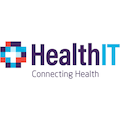DR stands for Disaster Recovery.
Backs up your entire server to the cloud and optionally, local storage. In an emergency we can have the last backup of your server up and running and accessible to you within minutes.
Your data is important!
You rely on your data for business continuity, patient care, and meeting your legal obligations
to retain your patients’ medical history (for 7 years or up to the age of 25 for patients under 18).
Therefore, backing up your data is critical for you to:
- maintain your patient records
- protect patient and practice data from cyber-security attacks
- guard against human error; and
- keep your data safe in the event of a disaster
But not all backup is created equal.
The more frequent backups are run the less data is lost in the event of an emergency. If, for example, a disaster took down your IT system at 4pm and you had a daily backup that runs at 10pm then your data for that entire day is lost. If an hourly backup had been running and last ran at 3pm then at most an hour’s worth of data would be lost.
Recovery time is the time it takes for you to be back doing what matters - taking care of your patients. The best backup systems can restore your data quickly and efficiently, and a backup system with Disaster Recovery keeps copies of recent backups loaded and ready to be turned on. In the event of a disaster, this means you get emergency access to your data in minutes, not in hours or days.
On their own, on-site backups cannot protect you against fire, flood, or theft. And a disk that you have to take home relies on a person, goes off-site only once a day, and can be damaged, lost, or stolen. A backup to the cloud gives you automated, secure, off-site backup. The best backups are stored in multiple locations to give you the best possible chance of weathering different situations.
Many backup systems are vulnerable to ransomware attacks, malicious attacks, and data loss. Cloud and Disaster Recovery backups give greater protection because they are stored off-site in a location that hackers cannot access.
How would you know if your backup stops working? And how long might your backup have been down before you find out? A good backup system gives you peace of mind and constantly monitors all successes and failures to ensure that your practice is always protected and that any failures are resolved quickly.





